How Personal Development Can Change The World
HOW PERSONAL DEVELOPMENT CAN CHANGE THE WORLD (ISSUE 111)
By Diane Gold
When one person betters herself, the world is better by one person. When many better themselves, this is multiplied. Therefore, personal development changes the world, one person at a time.
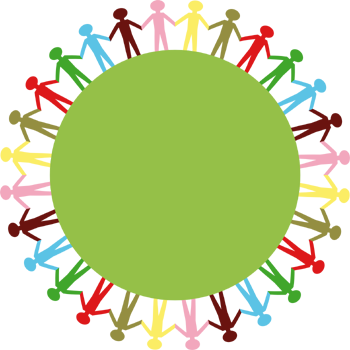 But, we may say, personal development is evolution of the individual, and changing the world requires understanding government, corporate and independent machines and acting upon given situations. So how can working inward affect working outward?
But, we may say, personal development is evolution of the individual, and changing the world requires understanding government, corporate and independent machines and acting upon given situations. So how can working inward affect working outward?
The main thing to remember is that we are not stagnant beings; we grow in one direction or the other, so when we cultivate ourselves on a regular basis and facilitate our own flourishing, we are, in essence, changing and improving the world.
PRELUDE TO BEGINNING OR NOT?

Before we can work on ourselves, do we have to stop any downward spiraling that exists from any part of our lives or from any self-limiting beliefs? ABSOLUTELY NOT, NOT NECESSARY, BARRIER THINKING, NO.
There is no need to work toward beginning. We just begin. Yes, in order to be able to pass a standardized test, we may have to take some courses to qualify. But, this is not a prelude; beginning constitutes beginning from wherever we are, so that we can go from there to achievement.
Let’s bold this rule to live by and make it an action step.
ACTION STEP
BEGIN FROM WHEREVER WE ARE. It makes no sense in comparing ourselves to someone else, because we are not someone else. We will always be ourselves, so let’s begin from where we stand. We can learn characteristics and skills of others, but we will always be ourselves and available to become higher humans.
TYPES OF PERSONAL DEVELOPMENT
Let’s look at some of the different ways people develop themselves.
Some of us read books. Many of us believe we are helping ourselves by the mere fact that we have purchased and read a book from the self-help section of the book store (the placebo effect). That’s a good thing, though. It promotes balanced people which creates a more stable world.
Others of us mingle with great humans and take on a little of each of them through every connection.
Others of us go to support groups or prayer groups, where there is a leader. The leader discusses, speaks; hopefully we get a chance to speak. Definitely we get the chance to learn to learn.
There is also the newer group model for creating a solution, where there is no leader for an agenda-driven gathering, but participant’s input creates the solution.
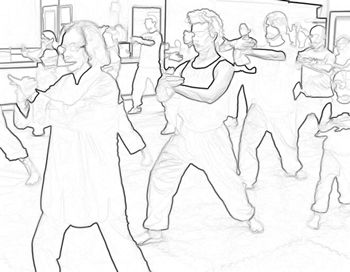 Another type of personal development fortifies us by our absorption of the very method we are studying. Tai chi, the other martial arts, free dance, meditation, yoga are disciplines in this mind-body arts category. Music, visual art, poetry are in the creative arts category. By studying any of these methods, we consume a system of learning. This system develops who we are. This development fortifies the world.
Another type of personal development fortifies us by our absorption of the very method we are studying. Tai chi, the other martial arts, free dance, meditation, yoga are disciplines in this mind-body arts category. Music, visual art, poetry are in the creative arts category. By studying any of these methods, we consume a system of learning. This system develops who we are. This development fortifies the world.
MY RECENT PERSONAL DEVELOPMENT EXPERIENCE AT 5-RHYTHMS’ DANCE SESSION
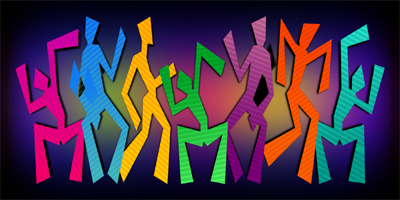 I had the pleasure of attending a 5-Rhythms’ dance session on Friday, January 3, led by Amber Ryan, in Miami. The purpose of the session was to spread goodness, to cleanse the body, mind and spirit and resonate with learning about ourselves. The ultimate goal was use the dance method (which is a method of doing your own steps with a little bit of guidance) to shake off all our own personal garbage so that we could let our own inherent love shine through.
I had the pleasure of attending a 5-Rhythms’ dance session on Friday, January 3, led by Amber Ryan, in Miami. The purpose of the session was to spread goodness, to cleanse the body, mind and spirit and resonate with learning about ourselves. The ultimate goal was use the dance method (which is a method of doing your own steps with a little bit of guidance) to shake off all our own personal garbage so that we could let our own inherent love shine through.
What is important to me about this session is that we are not told what to do or what step to dance. This freedom allows me to learn and grow. The instructor guides us on what part of our body on which to focus. Most of the time, though, we are dancing freely, with no instruction, just moving to the music, between 100 and 126 BPM (beats per minute, which you may remember from some of my other articles or from your own knowledge base – for reference, the heart beats at about 60 or 70 BPM). It is the least egocentric dance discipline I have seen. That’s because people are busy getting to know themselves, rather than comparing their dance moves to others. There is a guide, but there are no leaders.
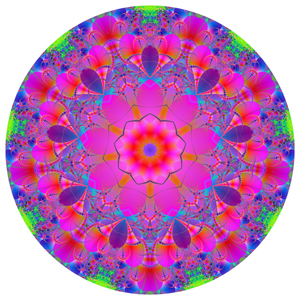 I was very involved in the dance. But the word love came up several times. One of the other partners in the event kept expressing how she felt “so much love;” whether this was inside herself or from the group, I will not speculate. Although I could speculate because I felt some kind of love-y feeling inside, radiating out to the group and back to me. Nothing ethereal, I was heated from dancing. I was happy from releasing the tension in my body through dancing. I was dancing with others, one of my favorite activities. And I was socializing with people who had nothing, at that moment, to prove.
I was very involved in the dance. But the word love came up several times. One of the other partners in the event kept expressing how she felt “so much love;” whether this was inside herself or from the group, I will not speculate. Although I could speculate because I felt some kind of love-y feeling inside, radiating out to the group and back to me. Nothing ethereal, I was heated from dancing. I was happy from releasing the tension in my body through dancing. I was dancing with others, one of my favorite activities. And I was socializing with people who had nothing, at that moment, to prove.
EUREKA
I realized that developing this positive inner feeling was personal development at its finest. If everyone were developing this joyous feeling within, we would be employing the changing the world principle, making positive humans, one individual at a time. By multiplying one times the number of people working on themselves, the world became kinder, more confident, more respectful, more social in a gentle way, with better human beings.
TAI CHI ACKNOWLEDGEMENT
I know this EUREKA PRINCIPLE to be true from tai chi, also. Because of the biological effects of doing it and the concentration required to execute it; we feel balanced, moral, cleansed, helpful to others from the inside out as well as the outside in. And, here, I can clarify that the dancing I mentioned earlier uses the same principles to move the arms, the body, the legs, the head and to personally develop the self.
CONCLUSION: HOW PERSONAL DEVELOPMENT CAN CHANGE THE WORLD
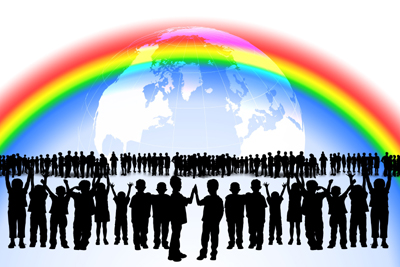 We know that personal development is individualistic, but individuals make up the world. We know that if we develop ourselves through certain disciplines, we will become spiritually rich humans and contribute good acts in the world.
We know that personal development is individualistic, but individuals make up the world. We know that if we develop ourselves through certain disciplines, we will become spiritually rich humans and contribute good acts in the world.
When we as people become better rounded, we contribute good deeds. Lots of individual good deeds changes the world, as the more personal development we do, the more our generosity prevails and the more, we contribute 1 individual at a time.
When we as people become better rounded, we contribute good deeds. Lots of individual good deeds changes the world, as the more personal development we do, the more our generosity prevails and the more, we contribute 1 individual at a time.
ACTION STEPS
Here are several steps that might be of interest to further our personal development.
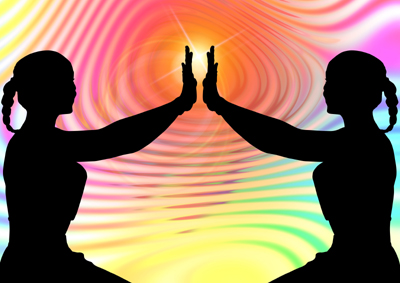 1) Choose a discipline to do on a daily basis. (It works best if you are receiving non commercial gain from said discipline. Example: this is not about painting a picture in order to sell it.)
1) Choose a discipline to do on a daily basis. (It works best if you are receiving non commercial gain from said discipline. Example: this is not about painting a picture in order to sell it.)
2) Decide on an amount of time to which you commit that is comfortable to you: 10 seconds a day or 15 minutes a day. Once you pick a number, it cannot decrease. Also, take note: once you increase your time on any one day, your increase now becomes your new daily duration of time for the discipline.
3) Do the discipline every day before the end of your day (works best in morning, if this works for your schedule).
4) After 30 days, decide whether you are a better human being because of this discipline.
5) No matter what the answer, do it another 15 days. Remember this can be 10 seconds a day or 15 minutes.
6) At the end of the 45th day, decide whether it is making you peaceful, happy, relaxed, creative, motivated, balanced. If yes, keep going. If not, go to 1).
RESEARCH NOTE
According to neuroeconomist, P.J. Zak’s research, we do good acts to maintain our position in the community because we are social creatures and wish to stay in favor in our society. When we have our food and shelter, it’s easy and we produce an adequate amount of hormone oxytocin, which gives us our generosity. When we have no food, we are out of balance, will not produce enough oxytocin and will do anything to survive, thus lose our generosity. This research also mentions the 5% of people who are in great socioeconomic situations but do anti-generous things like take billions of dollars in Ponzi schemes that hurt others. And another 5% of people who renounce their good socioeconomic status to be generous and Mother Theresa-like to others.
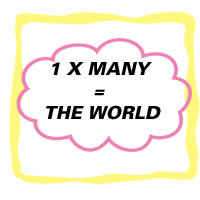
![]()
____________________________________________________________________
FEEDBACK
We value your feedback very much.
Please leave a comment below.
Please LIKE us on the website and at WarriorsOfWeight on Facebook. Thanks.
![]()
DIANE GOLD, AUTHOR
Diane Gold, Founder of Warriors of Weight, Turning Habits Into Health, is a mentor in tai chi, kung fu and meditation, a music, fitness and stress expert, dedicated mom, studying plant-based nutrition and habit change.
She believes that, in order to change the world, we must first change from the inside, each of us, individually. She says,
“Each of us needs personal development, be it tai chi, music or weekly self-help meetings. In order for us to accommodate our own changes and grow ourselves, this is best done on a daily basis.
“If we all do it, we will all become better people. If we are better people, we are changing the world for the better.”

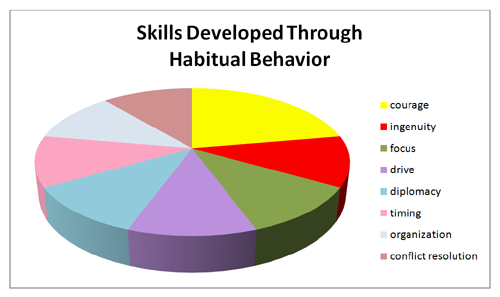
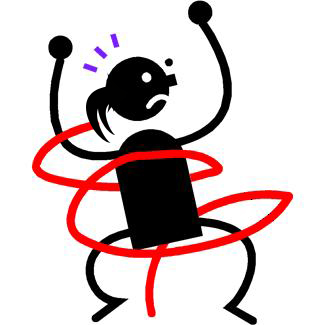 Let’s define habitual behavior as a pattern of action that follows an emotional and/or physical craving that leads to some type of internal intake or ingestion, tick, movement, series of actions, that takes place several times a day, once daily or several times a week, and that, when removed without replacement, causes psychic or physical reaction that can be severely painful. When we change the habit, we actively divert our own attention from the expectation of the old reward we couldn’t live without using the same skill set we created in developing the original habitual behavior; this is how we form a new one.
Let’s define habitual behavior as a pattern of action that follows an emotional and/or physical craving that leads to some type of internal intake or ingestion, tick, movement, series of actions, that takes place several times a day, once daily or several times a week, and that, when removed without replacement, causes psychic or physical reaction that can be severely painful. When we change the habit, we actively divert our own attention from the expectation of the old reward we couldn’t live without using the same skill set we created in developing the original habitual behavior; this is how we form a new one.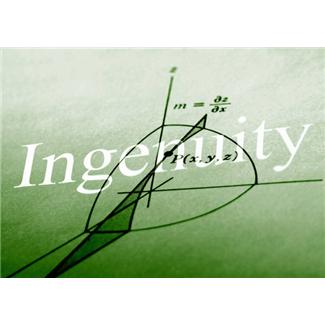 we have ingenuity enough to have devised a way to live with our habitual behavior in our lives,
we have ingenuity enough to have devised a way to live with our habitual behavior in our lives,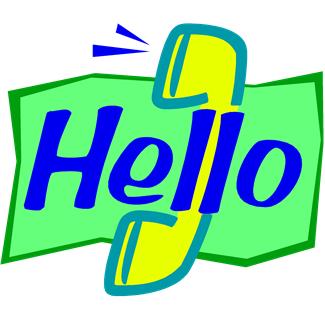
 Most of the time, we develop habitual behavior because we experience grief, anger or limited self-esteem. These can come from abuse, crisis, death, sickness and whatever our mind conjures, since feelings are irrational and show up when they show up. Since we have a myriad of valuable skills from our habitual behavior, we are worthy, since worth is calculated by our collection of respectable, attention-getting skills.
Most of the time, we develop habitual behavior because we experience grief, anger or limited self-esteem. These can come from abuse, crisis, death, sickness and whatever our mind conjures, since feelings are irrational and show up when they show up. Since we have a myriad of valuable skills from our habitual behavior, we are worthy, since worth is calculated by our collection of respectable, attention-getting skills.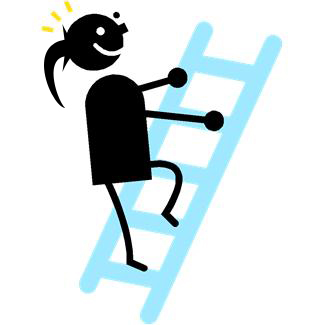
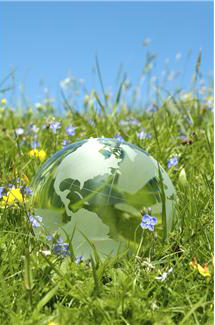 This coming Saturday, April 28, is my birthday. Oh, wait. Broadcasting this fact is the very opposite of our message here: that of getting away from me, me, me. This article is about the power we have as developed individuals to make a difference on global issues.
This coming Saturday, April 28, is my birthday. Oh, wait. Broadcasting this fact is the very opposite of our message here: that of getting away from me, me, me. This article is about the power we have as developed individuals to make a difference on global issues.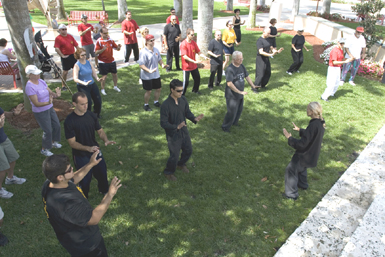 I like that image. Let this flamboyant vision not lead us away from the grand ultimate purpose of tai chi in 2012, which is not a display for publicity, a way to get a date, a way to be cool or marketing for consumerism; although all of these things may happen as a result of doing the training in a public place. The point is to spread peace, harmony and unity through exposing people to movement that changes mindset leading to global action. Change in mindset, as with any discipline, is a process.
I like that image. Let this flamboyant vision not lead us away from the grand ultimate purpose of tai chi in 2012, which is not a display for publicity, a way to get a date, a way to be cool or marketing for consumerism; although all of these things may happen as a result of doing the training in a public place. The point is to spread peace, harmony and unity through exposing people to movement that changes mindset leading to global action. Change in mindset, as with any discipline, is a process.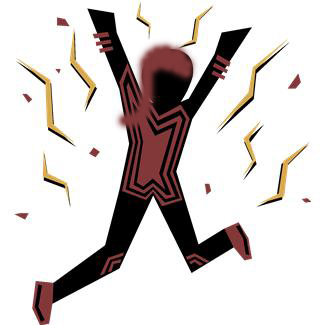 PASSION
PASSION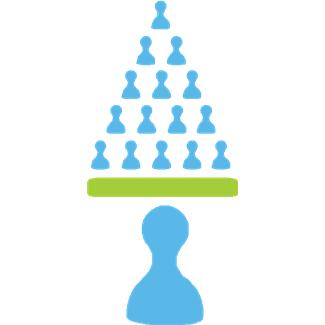 If I do tai chi and teach 8 students, then 8 minds get changed. If these 8 students have 8 students, then 64 minds get changed. If these 64 have 8 students, then 512 minds get changed. If this group of 512 goes to 1 of the 300 World Tai Chi And Chi Kung Day events and mingles with the 512 students of each of 10 other teachers; that’s 5,632 minds at 300 events. That’s over a million changed minds, which is the power of community.
If I do tai chi and teach 8 students, then 8 minds get changed. If these 8 students have 8 students, then 64 minds get changed. If these 64 have 8 students, then 512 minds get changed. If this group of 512 goes to 1 of the 300 World Tai Chi And Chi Kung Day events and mingles with the 512 students of each of 10 other teachers; that’s 5,632 minds at 300 events. That’s over a million changed minds, which is the power of community.





